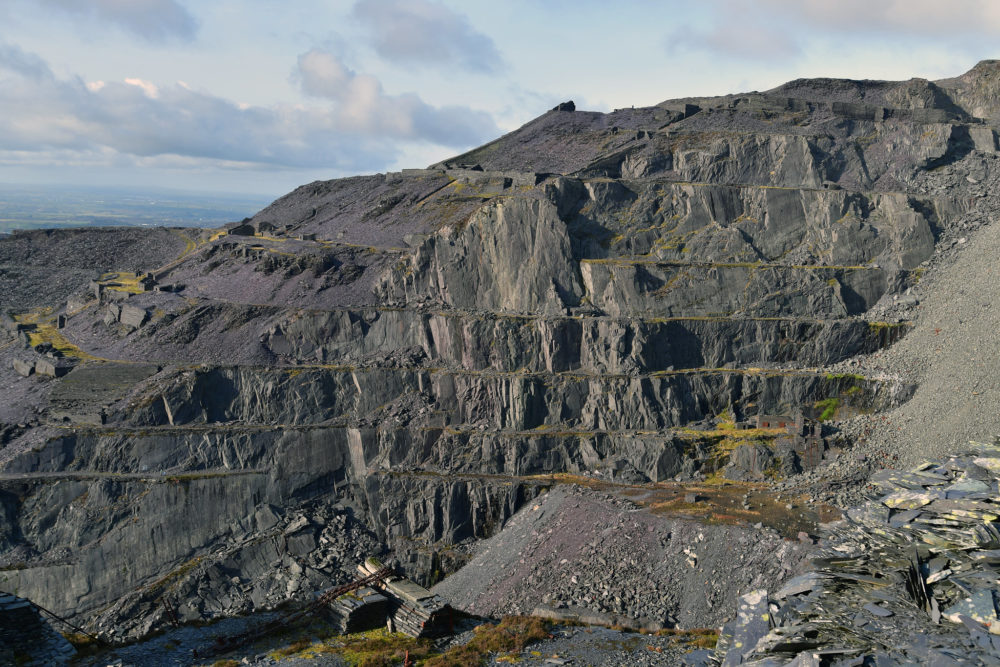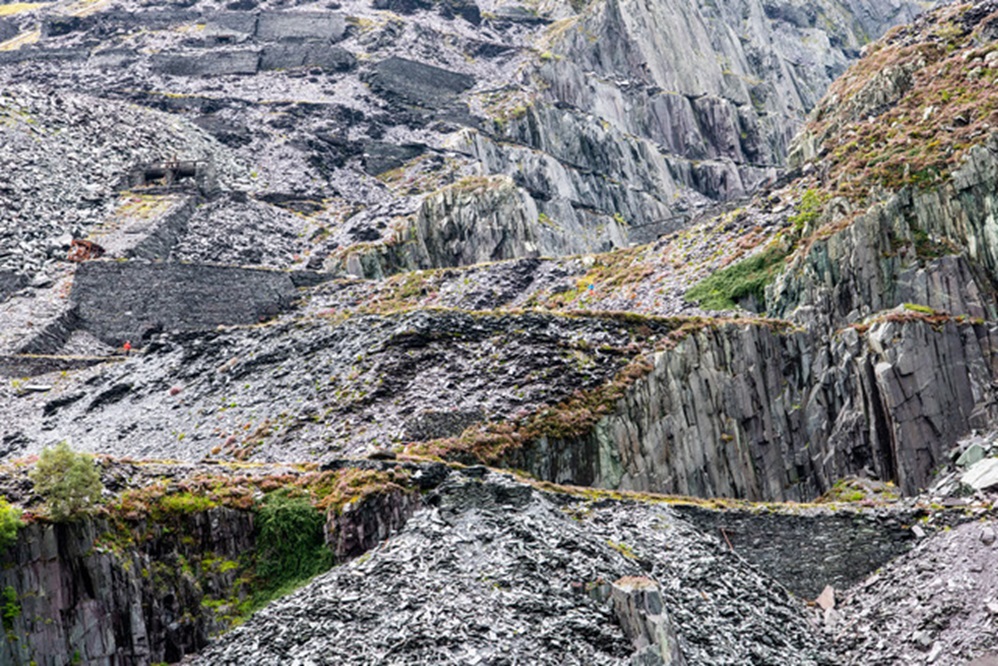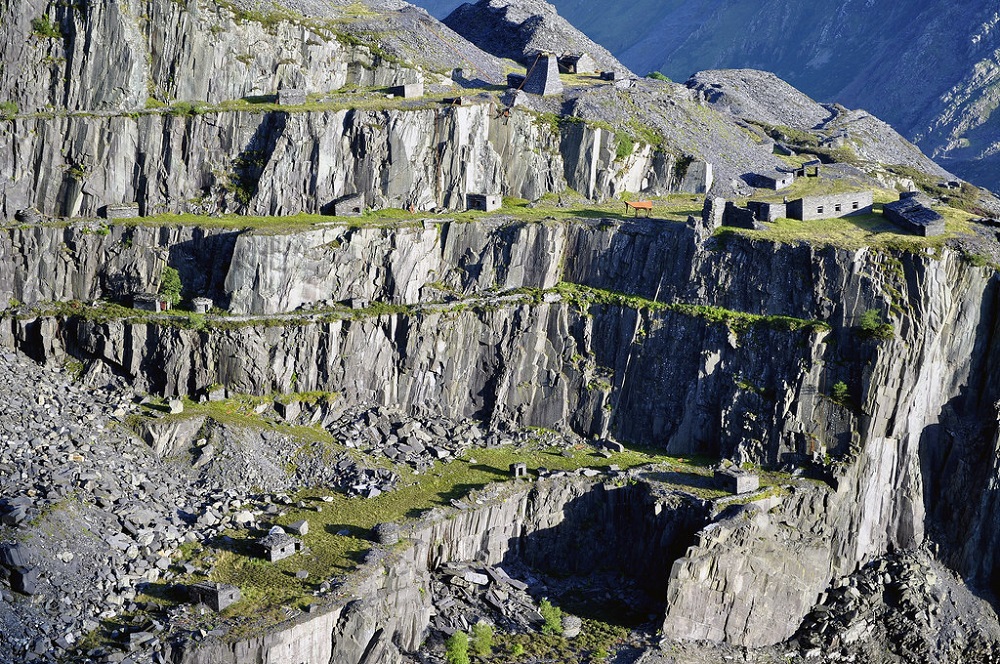BMC embraces historic Welsh quarry names following controversy

Stephen Price
The British Mountaineering Council (BMC) Cymru has collaborated with groups in north Wales to explore the historical place names of Dinorwig quarries, following controversy over the use of adopted English names such as ‘Dali’s Hole’ last year.
This initiative reflects a growing recognition of the importance of preserving local names as a way of honouring the history and culture of an area.
A unique event took place to commemorate the North Wales Quarrymen’s Union and to demand the protection of Dinorwig quarry’s historic Welsh place names which have been replaced by English names such as ‘Dali’s Hole’ back in June 2024.
Taking place at the sword on the shore of Llyn Padarn the event marked the 150th anniversary of the first battle of the North Wales Quarrymen’s Union.
A key element of the event involved calls for the Ponciau and Sinciau (galleries and deep holes) to be marked with their correct names, as well as the names of the men who lost their lives in Chwarel Dinorwig to be etched in stone at appropriate places.
Organisers called on Cyngor Gwynedd to engage with First Hydro (now called ENGIE) the quarry owner to secure agreement that the traditional Welsh names given to the parts of the quarry cannot be displaced by modern English names which were given by climbers in the last 40 years such as Mordor, The Lost World, Dali’s Hole and others.
Traction
Sharing the news on UKClimbing.com, Access & Conservation Officer for Wales, Tom Carrick, explained: “In recent years, the move to embrace traditional names has gained significant traction.
“For example, the Welsh, Eryri (pron. Eh-ruh-ri) is increasingly used in place of “Snowdonia”, as well as Yr Wyddfa (pron. Ur With-va) rather than Snowdon.
“This trend is not limited to Wales; it resonates internationally, with names like Uluru and Denali becoming more widely recognised in Australia and Alaska, replacing the colonial Ayers Rock and Mount McKinley respectively. In New Zealand, a strong petition to officially adopt the country’s Māori name, Aotearoa, is gaining momentum.”

He added: “As part of this effort in the Dinorwig Quarries, the BMC consulted with Cadw (the authority responsible for protecting Wales’s historic environment), the Royal Commission on the Ancient and Historical Monuments of Wales, and numerous local groups. The BMC supports preserving historical names relevant to climbing areas .
“A balanced approach was reached: a hierarchical list of place names will be created, prioritising the most historically significant names at the top.
“This approach ensures that historical names are preserved without erasing others. It acknowledges that before climbing became a prominent activity in north Wales, the slate industry profoundly shaped the region’s landscape.
“Remembering history is essential – it teaches lessons, celebrates culture, and connects us to our past. For local communities, these names are reminders of the gruelling labour endured in the quarries, where many workers faced perilous conditions and often lost their lives.
“The BMC also emphasises the importance of preserving the more recent history of climbing in North Wales. Routes established over 50 years ago tell their own stories and deserve recognition alongside the slate industry’s legacy.
“We invite you to join us in using and practicing the pronunciation of the original names used by the chwarelwyr (quarrymen), researched to the best of the team’s abilities (caveat: there were some differences in the names used by different workers). These names are not just words; they are a tribute to those who sacrificed so much, earning meagre wages while sculpting the quarries into what we see and enjoy climbing on today.”
“Many of the names, such as Australia and California, reflect global events of their time. For instance, the California ponc (level) was named during the Gold Rush era, when workers would have heard about the event.”

“Australia, one of the ponciau (levels), was so remote that reaching it felt like a journey to the other side of the world. Ponc Toffat was named after the biblical toponym “Tophet”, because of its brutal working conditions, likened to hellfire. These names hold rich stories, connecting us to the lives and imaginations of the people who once laboured there.
“I would like to extend a huge thank you to Gareth Roberts from Menter Fachwen who helped provide a lot of the historic information and who, through the Welsh Place-Names Society, gathered a lot of the information with chwarelwyr (quarrymen) who worked in Dinorwig before the quarry closed.”
Response
The response to the decision has been largely positive, with one commenter sharing: “Welsh pronunciation is pretty easy because it is phonetic, unlike English.
“Once you know how the letters are pronounced (mostly the same as in English, a few exceptions) you’ll get it right almost all the time (again unlike English… for which there are also no pronunciation guides for foreign visitors in climbing guides, which of course wouldn’t cross anybody’s mind…). I’m also not a Welsh speaker but learning the pronunciation is really as easy as ABC… literally.
“I Googled ‘Welsh pronunciation guide’ and this useful pdf was in the first few results: https://users.aber.ac.uk/jcf12/project/welshcheat/welshcheat.pdf
“For the time it took you to write that reply casting a negative light (‘I’m not X, but…’, ‘absurd’, ‘likely to get badly wrong’, ‘not even as much as’) you could have found and probably read through that page. The internet is a wonderful thing, you know, it’s quite easy to find things out…”
Find out more about the history of the Dinorwig Quarries here.
Support our Nation today
For the price of a cup of coffee a month you can help us create an independent, not-for-profit, national news service for the people of Wales, by the people of Wales.






How can one forget what was never taught in school…slave to wage slave = big hole in a mountain…
On the subject of education…German teachers in Argentina forgot their own history when educating Argentinians and the result is staring the country in the face…
And so they should. Gone are the days where we are told to be seen and not heard. Britain exists because our native language and culture shaped these isles for millennia.
I’m English, but I always thought it was called Dinorwig, so I see no need to change it.
But I still see Sisyphus trying to roll a rock uphill.